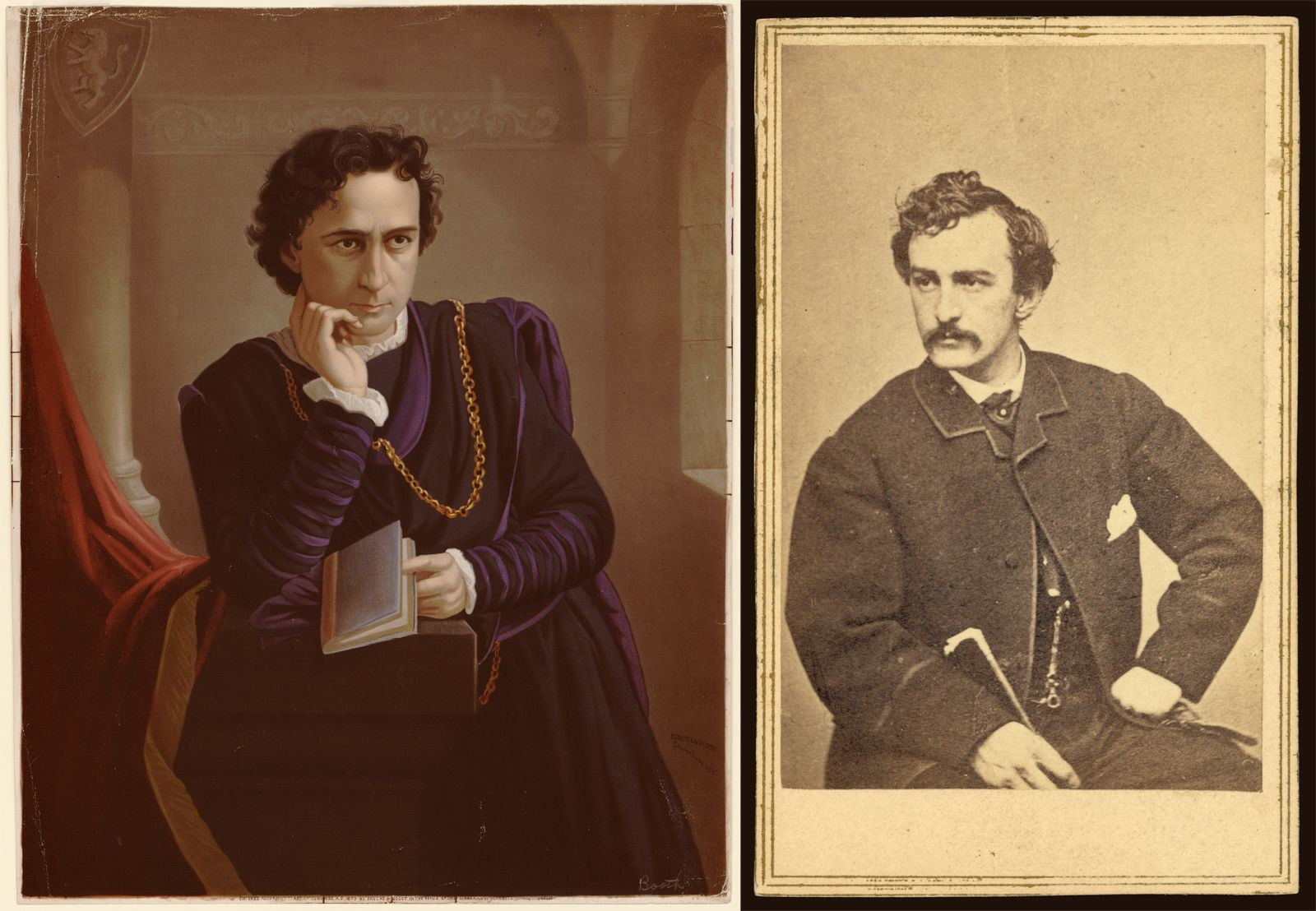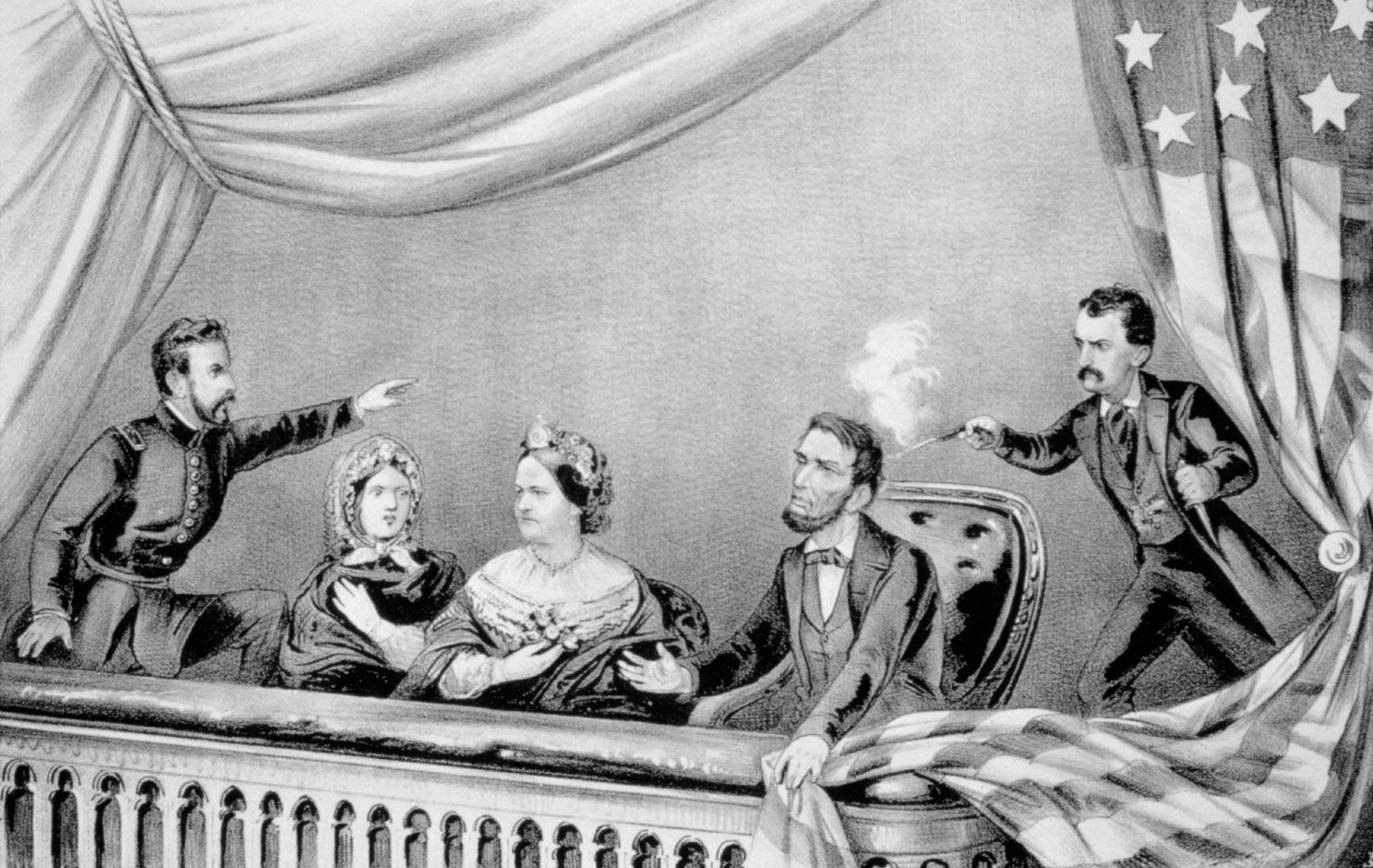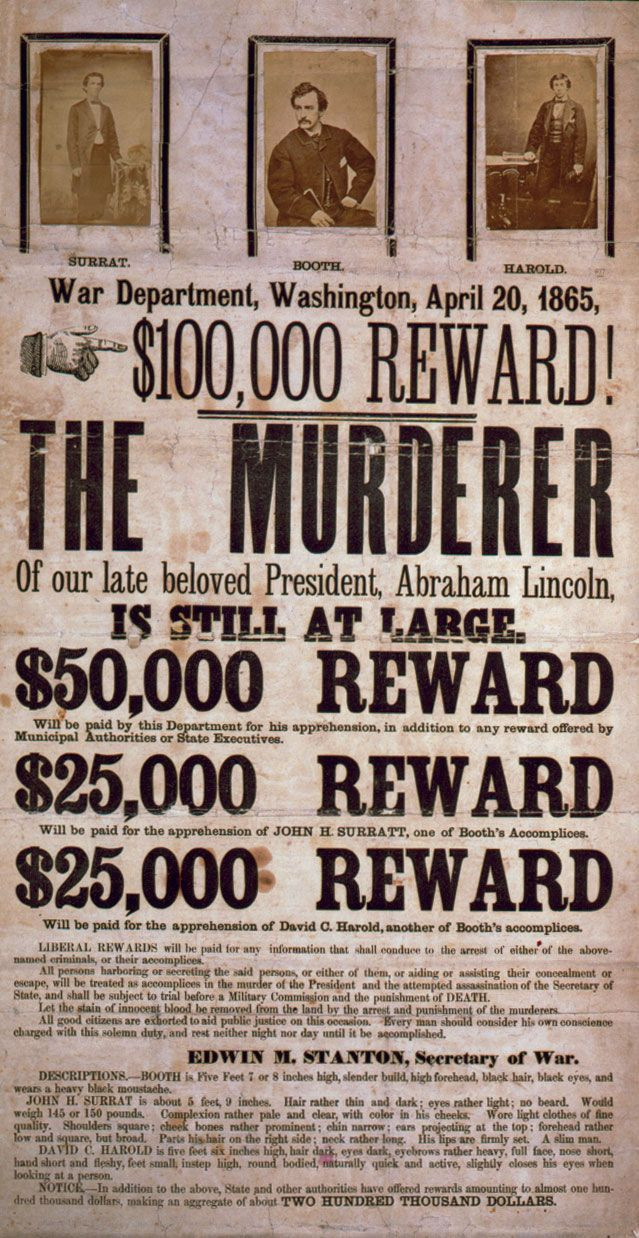John Wilkes Booth, born on May 10, 1838, near Bel Air, Maryland, and deceased near Port Royal, Virginia, on April 26, 1865, remains a figure etched in American history, not only for his dramatic lineage but for his pivotal role in the assassination of U.S. President Abraham Lincoln. Descended from one of the United States’ most celebrated 19th-century acting dynasties, Actor John Wilkes Booth’s name is forever intertwined with this tragic event.
 Edwin Booth and John Wilkes Booth, brothers and actors, one famed for his talent, the other infamous for his crime.
Edwin Booth and John Wilkes Booth, brothers and actors, one famed for his talent, the other infamous for his crime.
Born into the illustrious Booth family, John Wilkes was the ninth of ten children of Junius Brutus Booth, a renowned actor. From a young age, actor John Wilkes Booth displayed a promising theatrical aptitude, yet his burgeoning talent was accompanied by emotional volatility and a pronounced egocentricity. This complex personality made it challenging for him to reconcile with the widespread acclaim garnered by his brother, Edwin Booth, who ascended to become the preeminent actor of their time. The shadow of his brother’s success would become a recurring theme in John Wilkes Booth’s life, both on and off the stage.
His initial foray into professional acting in Baltimore in 1856 proved unsuccessful. However, actor John Wilkes Booth persevered, securing minor roles in Philadelphia starting in 1859. A turning point arrived when he joined a Shakespearean stock company in Richmond, Virginia. By 1860, his performances on a tour throughout the Deep South garnered widespread acclaim, solidifying his reputation as a sought-after actor. Even amidst the escalating tensions of the American Civil War, actor John Wilkes Booth remained in high demand. Notably, he took on the lead role in a New York City production of William Shakespeare’s Richard III in 1862, showcasing his talent to northern audiences even as his southern sympathies deepened.
A fervent advocate for the Southern cause, actor John Wilkes Booth was vocal in his support of slavery and his vehement disdain for Abraham Lincoln. His convictions extended beyond mere rhetoric; Booth volunteered in the Richmond militia that carried out the hanging of abolitionist John Brown in 1859, a stark indication of his deeply held beliefs. By the autumn of 1864, Booth’s political passions took a dangerous turn as he began conceiving a plan to abduct President Lincoln in a sensational scheme. Enlisting a group of coconspirators, actor John Wilkes Booth spent the winter of 1864–65 in Washington, D.C., meticulously plotting various abduction scenarios. When these plans repeatedly failed, Booth’s resolve hardened, shifting from abduction to a more drastic and deadly objective: the assassination of the President and potentially other high-ranking officials.
On the fateful morning of April 14, 1865, actor John Wilkes Booth learned of President Lincoln’s scheduled attendance at an evening performance of the comedy Our American Cousin at Ford’s Theatre. Seizing this opportunity, Booth rapidly mobilized his associates, assigning each a role in his now-deadly plot, including the intended murder of Secretary of State William Seward. Booth himself would target Lincoln. Around 6:00 pm, actor John Wilkes Booth gained entry to the deserted Ford’s Theatre. There, he strategically tampered with the presidential box’s outer door, ensuring it could be barricaded from within. Returning during the play’s third act, Booth found Lincoln and his guests with minimal security.
 Lithograph depicting the assassination of Abraham Lincoln at Ford's Theatre by actor John Wilkes Booth, a pivotal moment in American history captured by Currier & Ives.
Lithograph depicting the assassination of Abraham Lincoln at Ford's Theatre by actor John Wilkes Booth, a pivotal moment in American history captured by Currier & Ives.
Entering the presidential box, actor John Wilkes Booth brandished a .44-caliber derringer pistol and fired a single, fatal shot into the back of Lincoln’s head. A brief struggle ensued with Major Henry Rathbone, a Union officer present in the box as a guest of the Lincolns. Booth then vaulted over the box’s balustrade, leaping to the stage below, reportedly proclaiming “Sic semper tyrannis!”—Virginia’s state motto, meaning “Thus always to tyrants!”—or alternatively, “The South is avenged!”, or possibly both phrases. The landing was harsh; actor John Wilkes Booth fractured a bone in his left leg upon impact, though some accounts dispute the timing of this injury. Despite the injury, Booth successfully fled through the theater’s alleyway to his waiting horse. While the attack on Secretary Seward failed, President Lincoln succumbed to his wound and died shortly after 7:00 am the following morning.
 Broadside from 1865 offering a 0,000 reward for the apprehension of John Surratt, actor John Wilkes Booth, and David Herold, conspirators in the Lincoln assassination.
Broadside from 1865 offering a 0,000 reward for the apprehension of John Surratt, actor John Wilkes Booth, and David Herold, conspirators in the Lincoln assassination.
Actor John Wilkes Booth, joined by fellow conspirator David Herold, escaped through Maryland. Seeking aid for his injured leg, Booth sought out Dr. Samuel A. Mudd in Maryland, who later faced conviction for conspiracy. A massive manhunt was launched, fueled by a substantial $100,000 reward for their capture. Booth and Herold remained hidden for several days in a dense thicket near Zekiah Swamp in Maryland. On April 26, federal troops cornered them at a farm in Virginia, south of the Rappahannock River, where Booth was concealed within a tobacco barn. Herold surrendered before the barn was set ablaze, but actor John Wilkes Booth refused to yield. He was shot, the circumstances remain debated—whether by a soldier or self-inflicted—and carried to the farmhouse porch where he died. A doctor who had previously operated on Booth identified the body, which was then secretly buried before being reinterred four years later. Despite persistent rumors questioning the identity of the deceased, no credible evidence has ever emerged to dispute that it was indeed actor John Wilkes Booth who met his end in that Virginia barn.
